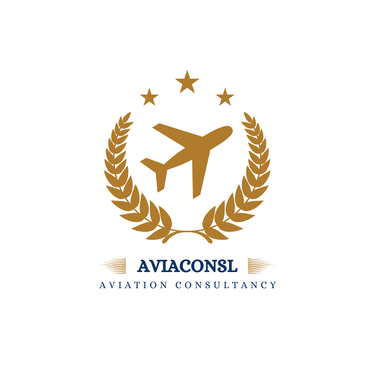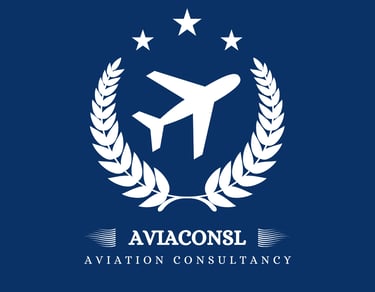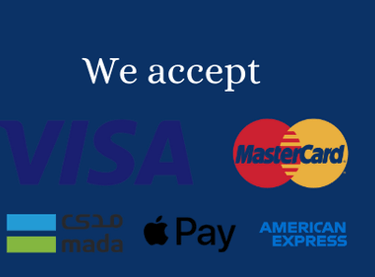Mandatory Technical Training for Pilots
Airline Obligations, Crew Commitments, and Legal Challenges
Technical training for pilots and flight crew is one of the most legally complex obligations in employment contracts between airlines and their employees. Commercial aviation demands a high level of continuous training to ensure compliance with operational and safety standards. Under international and regional regulations, airlines are required to provide recurrent training for pilots and crew members, whether at the time of hiring or periodically throughout their employment. While these training programs are essential for aviation safety, they often raise legal disputes, particularly regarding their mandatory nature, cost allocation, and the consequences for pilots who refuse to undergo training or resign before fulfilling their contractual commitments.
Many airline employment contracts mandate compulsory training programs, which are either financed by the airline or deducted gradually from the pilots' salaries. Often, contracts include clauses requiring pilots to remain employed with the airline for a specified period after completing training. If a pilot resigns before this period expires, they may be required to repay the training costs. While this practice is widespread, it has led to numerous legal disputes, especially when contracts impose unfair or excessively restrictive conditions that may not be legally enforceable in certain jurisdictions.
Legal Framework Governing Pilot Training Obligations
Pilot employment contracts are regulated by national civil aviation authorities and international conventions, including the 1944 Chicago Convention on International Civil Aviation, which underscores the importance of continuous training in the aviation sector. Regulatory bodies such as the International Civil Aviation Organization (ICAO), Federal Aviation Administration (FAA), European Union Aviation Safety Agency (EASA), and General Civil Aviation Authority (GCAA) in the UAE mandate recurrent training for pilots to maintain their operational competency. These training programs include:
Simulator training to assess pilots’ operational readiness.
Emergency and safety training in accordance with international standards.
Transition training for new aircraft models when an airline upgrades its fleet.
While these training programs are necessary, disputes often arise when airlines impose restrictive contractual conditions that prevent pilots from leaving or place an excessive financial burden on them.
The Legal Controversy Over Training Costs in Pilot Contracts
A recurring legal issue in pilot employment agreements is who bears the cost of training. Many airlines require pilots to repay training costs if they leave before completing a pre-agreed service period. These commitments typically range from two to five years, with contracts stipulating that pilots must reimburse training expenses if they resign prematurely.
In some jurisdictions, such clauses have been challenged as violating workers’ right to job mobility. In a well-known case before the European Court of Justice, a pilot contested a contract requiring him to repay a significant amount for training when he decided to leave for another airline. The court ruled that the repayment obligation was disproportionate to the actual training costs and constituted an unlawful restriction on labor mobility, leading to modifications in the airline’s policy.
The Legal Validity of Training Clauses in Pilot Contracts
Training clauses vary across airlines and countries, but some common legal questions arise:
Length of commitment versus training costs: Can an airline legally bind a pilot to a contract for years after training?
Actual training costs: Should a pilot be required to repay the full cost, or only a reasonable portion?
Portability of training credentials: If a pilot repays the training costs, can they use the qualification with another airline?
Under UAE law, employers can include clauses requiring employees to reimburse training costs, but the amount must be reasonable and reflect actual expenses. If a pilot challenges the contract in court, a judge may reduce the repayment obligation to align with actual costs rather than an arbitrary amount set by the airline.
Pilot Termination Due to Training Failure
Many pilot contracts condition continued employment on the successful completion of periodic training programs. If a pilot fails to pass a mandatory assessment, the airline may terminate their employment or restrict their operational privileges. This raises legal concerns when training failures are used as a pretext for dismissing certain employees or as a tool for exerting undue pressure on pilots, especially if the failure is not due to the pilot's own shortcomings but rather poor-quality training or inadequate resources provided during the assessment.
Several cases have been brought to court by pilots who were allegedly wrongfully dismissed after failing simulator training, despite not being given sufficient retraining opportunities. In a notable case in the United States, an airline was forced to compensate a pilot with a substantial financial settlement after it was found that his dismissal was based on an unfair performance evaluation. The court ruled that he had not been given the required opportunity to undergo retraining as per FAA standards.
Best Legal Practices for Airlines and Pilots
To avoid legal disputes related to technical training, pilot contracts should be drafted clearly and fairly, ensuring that:
The mandatory service period after training is reasonable and does not impose undue restrictions.
The repayment obligation for training costs is proportional to actual expenses and does not act as a penalty.
Pilots have the right to challenge training-related terminations, ensuring they are given adequate retraining opportunities before dismissal.
Training certifications should remain valid for other employers if the pilot repays the training costs out of pocket.
Technical training is essential for aviation safety, but it also represents one of the most legally complex areas in pilot employment agreements. While airlines seek to protect their investments in training, excessive restrictions can lead to costly legal disputes. Contracts must strike a balance between ensuring fair cost-sharing arrangements and protecting pilots’ rights, allowing for a reasonable degree of job mobility without placing undue financial burdens on flight crew members.




